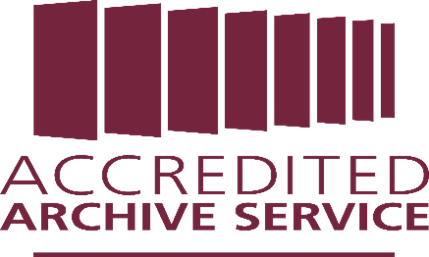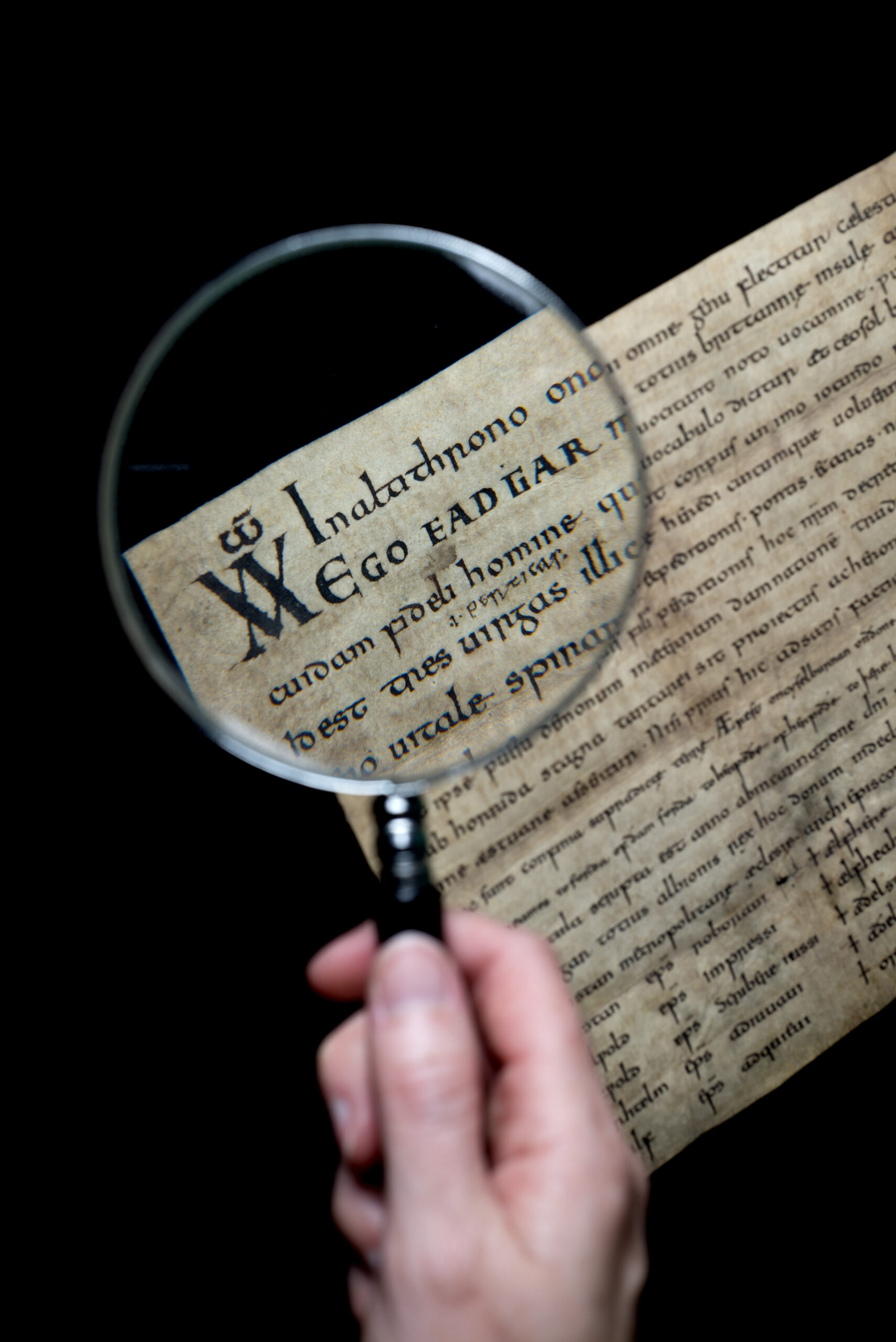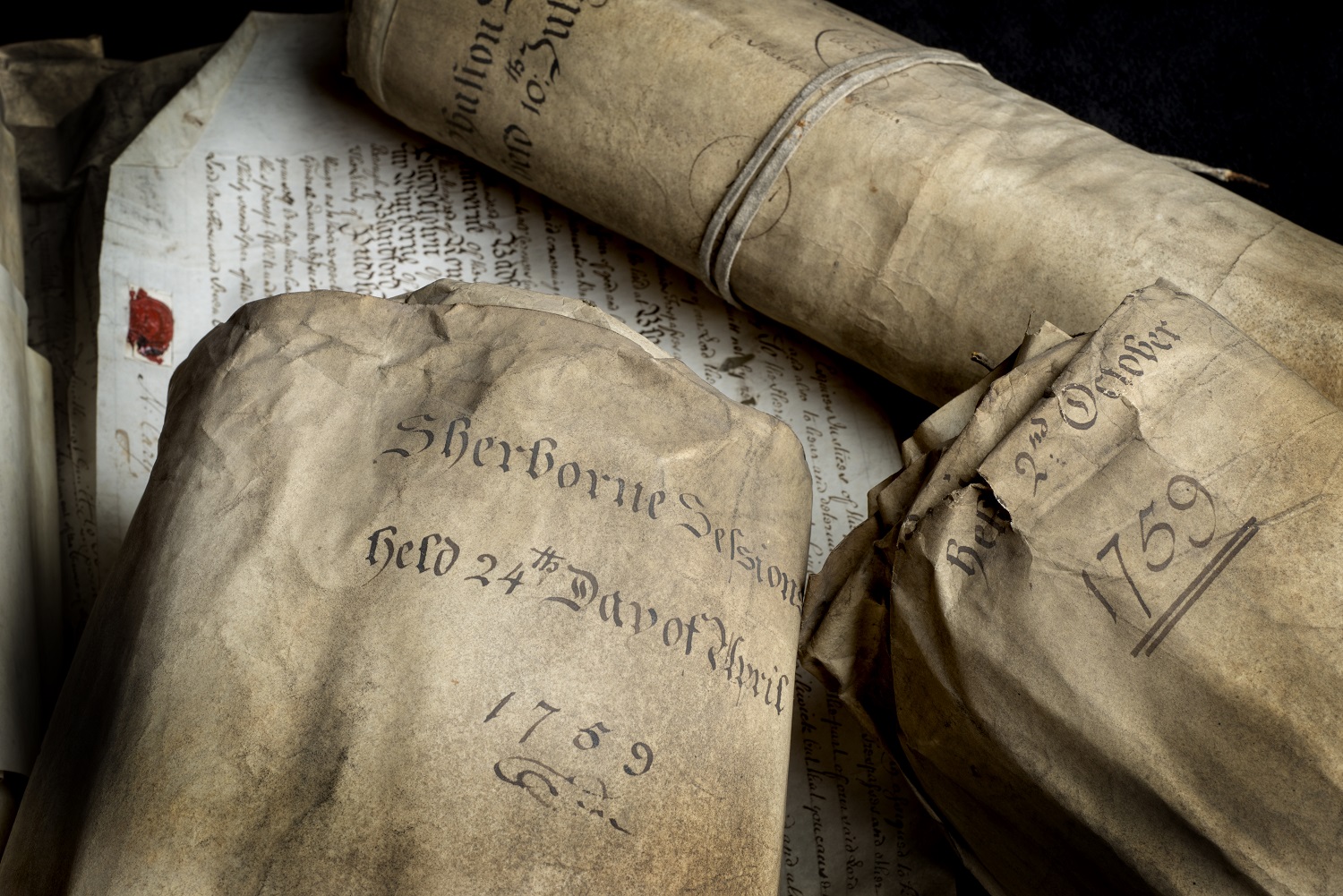Dorset History Centre is delighted to report that in July 2024 it received confirmation of its Accredited status from The National Archives. This is the second full accreditation review that the service has undergone – the first being in 2017. This was supplemented by a mid-point ‘light touch’ review in 2021.

Accreditation is an important part of a public archive service’s ability to gauge its performance, standards and delivery across a wide range of factors and considerations. These are both qualitative and quantitative. The process (which mirrors the accreditation process within the museum sector, administered by Arts Council England) is robust but supportive. The National Archives (TNA), part of the Ministry of Justice is empowered to review all archive services that hold Public Records and are thereby designated as PoDs (Places of Deposit). The latter means that DHC is deemed a proper place for records created by government bodies (e.g. hospitals, prisons, port authorities, courts and others – e.g. Coastguard Service) to be held locally in order to promote simpler public access. DHC is the only PoD in Dorset with the exception of the Tank Museum which holds material specific to its core collections. Accreditation is also an important means by which an archive service can demonstrate its ability to deliver statutory functions relating to the preservation of and accessibility to information and cultural heritage.

Accreditation reviews are broken down into three broad areas:
- Organisational Health (governance, staffing, finance, policy and strategy)
- Collections (acquisition, preservation (physical and digital), conservation, cataloguing, storage, emergency planning)
- Stakeholders (access provision, digital services, partnerships).
Information on the above areas is submitted via an online portal. It is then scrutinised by the TNA team responsible for Accreditation. This is then followed up by a ‘validation visit’ from a TNA representative along with a peer reviewer. The day-long visit involves a full tour of the service and meetings with a wide range of staff including senior leadership. In our case, we were really pleased to be able to involve our three apprentices in this proceedings so that they have now experienced this important process by which the sector is scrutinised and evaluated.

Accreditation is a relatively onerous and time-consuming process by its very nature. However, it is also a very helpful mechanism – obliging the archive service, in this case DHC, to examine all its procedures and practices and in some cases to realise that change and/or improvement is required. It is also something to which all staff can contribute – each member of the team brings specific skills and knowledge which are drawn upon to shape the submission. In June, we welcomed Dr Melinda Haunton from TNA along with a peer reviewer from the Transport for London archive. We were questioned on all aspects of DHC’s service provision. It was good have areas of strong performance reflected back to us – such as the progress we are making with digital preservation and some of the outreach work with communities less represented in the archive. Equally, it was important to have confirmed detail of where the service needs to change and develop; most pressing for DHC is the need for additional storage for archives. We intend to return to this with a new project in early 2025.
Perhaps most significantly, Accreditation helps to re-affirm that acquiring, preserving and making accessible unique and often fragile information so that it is available to future generations is a valuable and multi-faceted activity, one that DHC hopes to carry out for many years to come.

